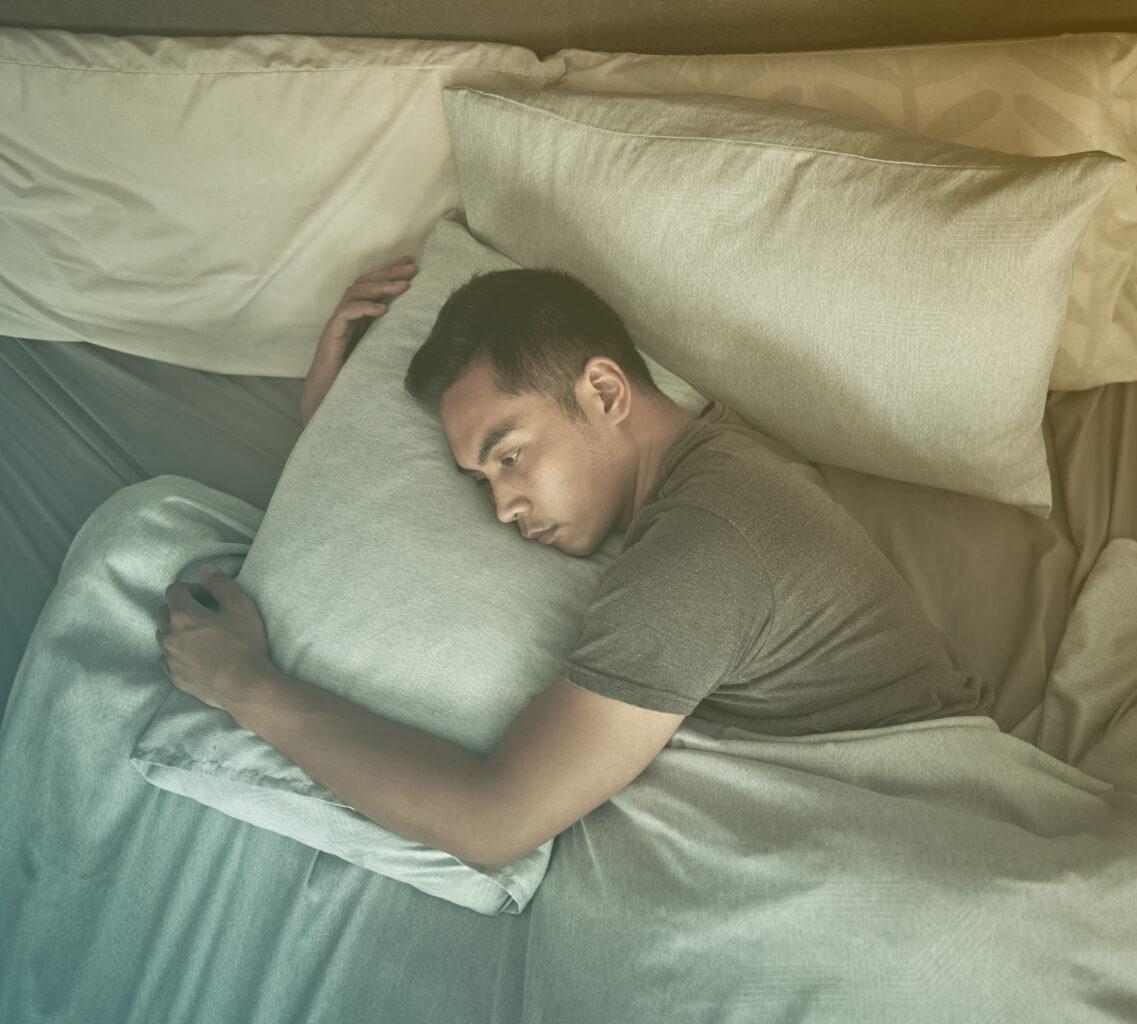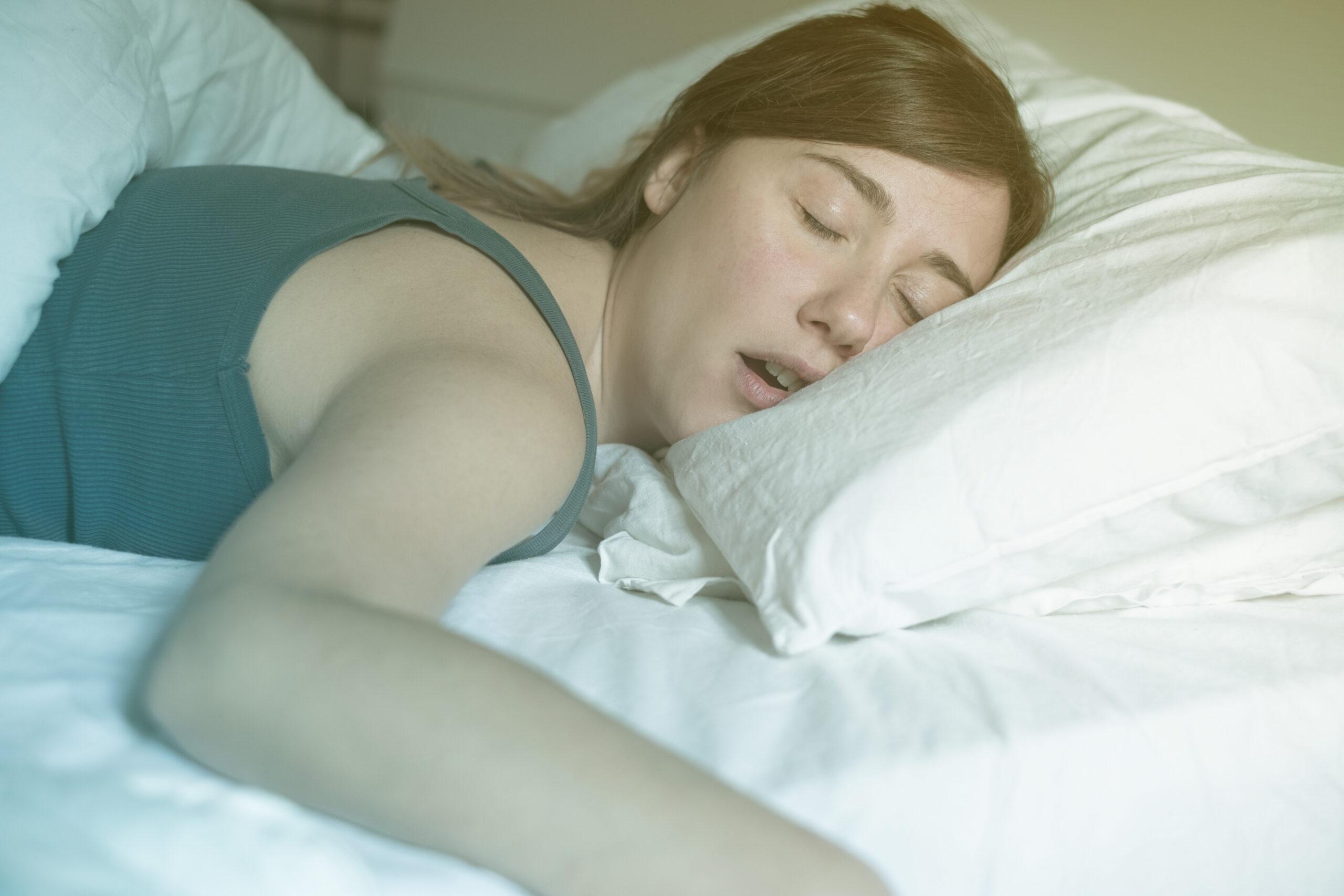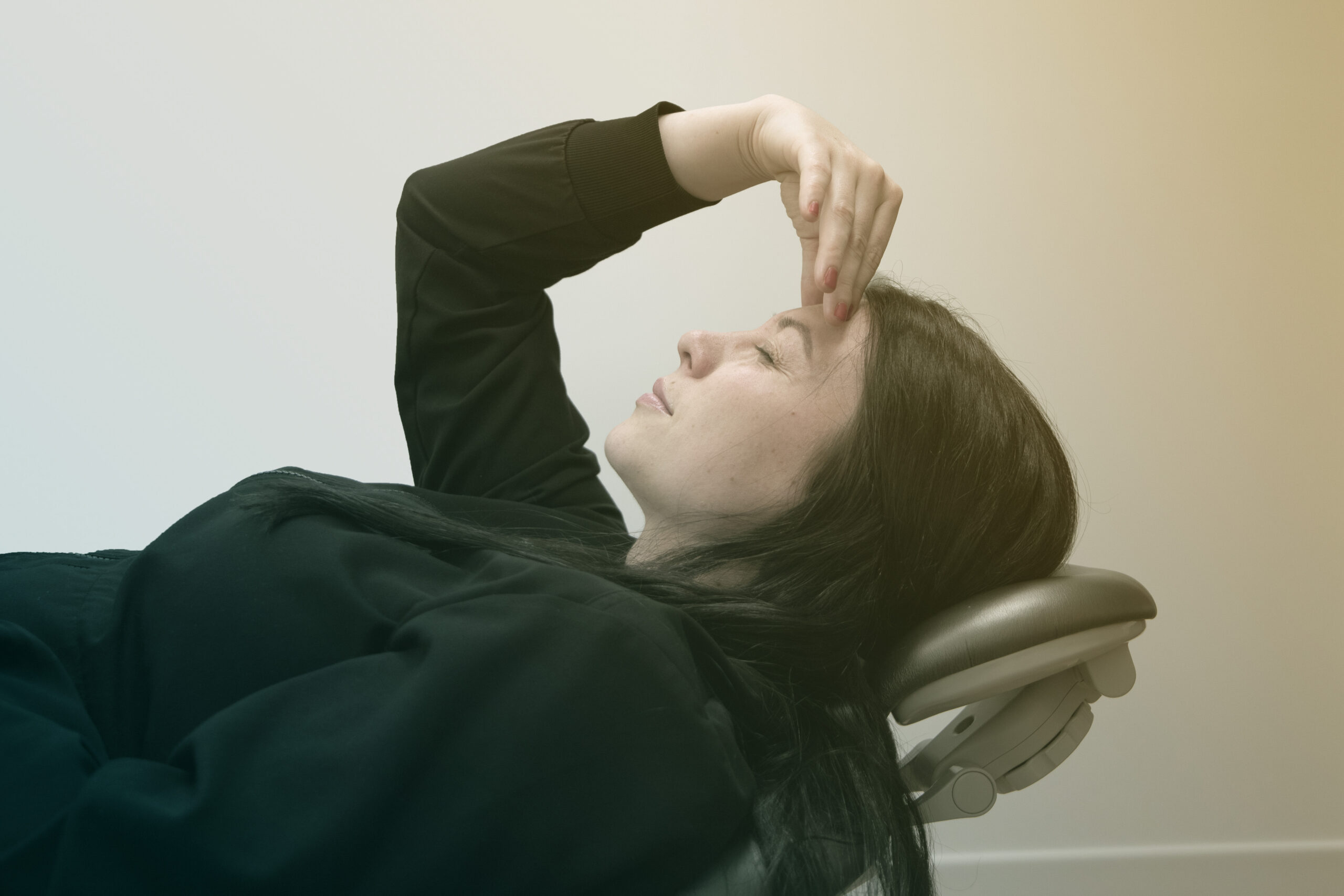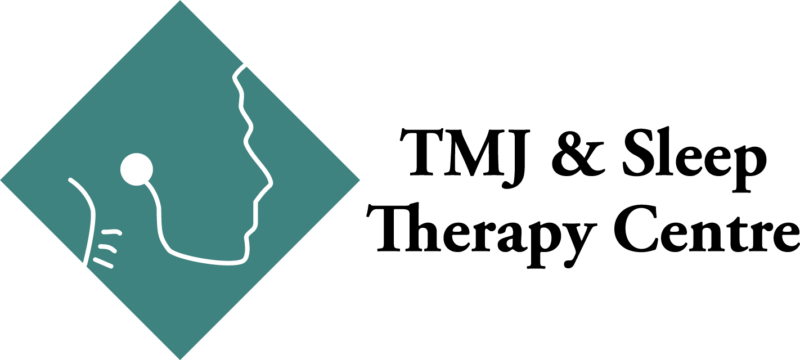Snoring + Sleep Apnea
The two most common sleep disorders are insomnia and obstructive sleep apnea (OSA). Insomnia is the inability to fall asleep or the drive to stay awake. OSA is a cessation or slowed breathing at night that causes repeated awakening unknown to the patient.
3 surprising facts about snoring and sleep:
- Snoring is not normal; snoring itself has been linked to an increased risk for cardiovascular disease. Some studies show that snoring is 90% predictive of OSA, but you don’t have to snore to have OSA.
- Mayo Clinic research recently showed that 91% of patients who failed drug therapy for insomnia were found to have OSA
- Untreated OSA is linked to the development of cancer, heart attack, stroke, diabetes, depression, and obesity

Sleep Apnea Symptoms
Obstructive sleep apnea is the most common sleep apnea diagnosis. This disorder is caused when the soft tissue in the back of your throat relaxes during sleep and blocks your airway. As airflow stops, the oxygen level in your blood drops, causing your brain to kick-start the breathing process, which is often accompanied by gasps or choking. Sleep apnea causes your sleep cycle to reset multiple times during the night, affecting how you feel when you wake up, leading to chronic conditions, and in some severe untreated cases even proving fatal.
Symptoms Include
- Insomnia
- Excessive daytime sleepiness
- High blood pressure
- Labored breathing at night
- Puffing sounds at night
- Dry mouth upon awakening
- Snoring
- Jaw clenching, grinding
- Morning headaches
- Overweight/obesity
- Irritability
- Change in personality
- Depression
- Difficulty concentrating
- Sweating during sleep
- Heartburn
- Reduced libido
- Urinating at nighttime
- Restless sleep
- Snorting, gasping, or choking
- Rapid weight gain
- Confusion upon waking
- Erectile dysfunction
- Diabetes
- History of heart problems
Take Our Questionnaire
Diagnosis
Obstructive Sleep Apnea (OSA) can only be diagnosed by a physician after the patient has had a sleep study. There are two types of sleep studies:
- Polysomnogram (in lab sleep study)
- Out of center sleep study (home sleep test)
Our sleep experts can help direct you toward the best test for your situation. In-lab sleep studies are considered by most to be the best data. However, many insurance companies dictate that physicians must first utilize home sleep studies. As result of this increased use home sleep tests have made great strides in recent years.
Dr. Klauer often encourages patients to read this article about sleep apnea and cardiovascular disease and this article about sleep apnea and diabetes to learn more about how sleep apnea can be related to other existing conditions.
Treatment
Prior to any treatment, it is essential to have a comprehensive clinical exam.
Treatment for OSA may include a CPAP machine and/or oral appliance therapy. Among other options are: weight loss, surgery, positional therapy, myofunctional therapy, and other modalities. OSA is a multifactorial disease and there is rarely one magic bullet to address it. Patients with mild to moderate apnea can see benefits from treatment with a custom-made oral appliance, while patients with severe OSA generally benefit from a CPAP and/or a custom orthotic device. CPAP treatment is coordinated with a provider who works closely with our office to develop an ideal course of treatment.
Symptoms Include
Explore More Symptoms + Conditions

Mouth Breathing
Understanding Mouth Breathing: Causes, Symptoms, and Effective Solutions Mouth breathing is not a bad habit but a compensation for survival. As humans, we are supposed to breathe through our noses so we can warm, moisten, and filter the air before […]
Learn More
Pediatrics + Sleep
Pediatric Sleep Issues: Causes, Symptoms, and Treatment Options Pediatric neurological disorders and chronic diseases are on the rise. Sadly, over 50% of children have a “chronic disease” compared to less than 10% only two generations before. Proper sleep is paramount […]
Learn More
Tongue and Lip-Tied
Is your child tongue-tied? “Tongue-tied” is the common name for ankyloglossia — when the lingual frenum (the thin piece of skin under your tongue that connects it to the bottom of your mouth) is too short or too far forward. […]
Learn More
Facial Pain + Headaches
Are they affecting your quality of life? TMD, headaches, and facial pain are life-altering conditions that can severely impact your quality of life. Over 10 million people in the US suffer from TMJ-related issues. We are learning that most of […]
Learn More